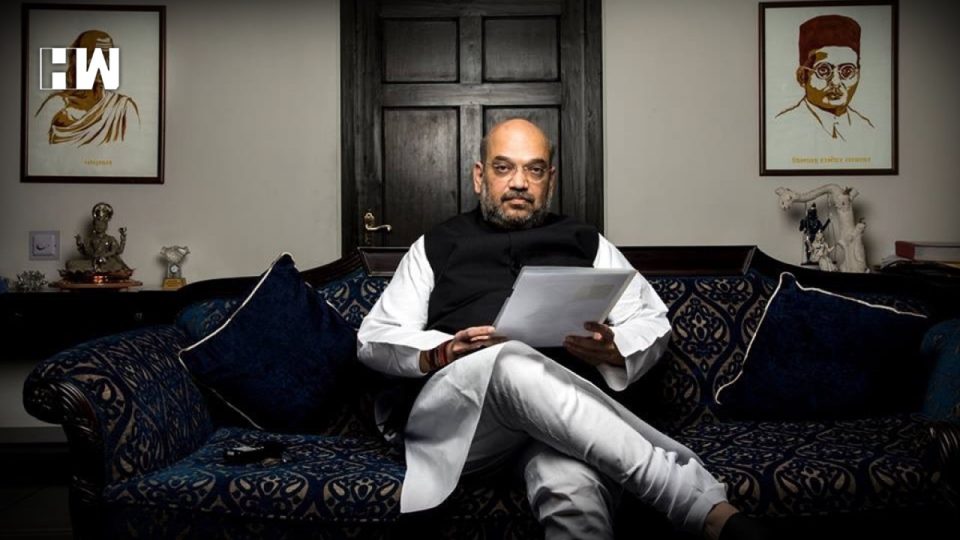In the 100 days of Modi 2.0, Amit Shah has risen in his own merits from being branded as Prime Minister’s ‘Man Friday’.
The return of Modi government from May 30 has been filled with drama, to say the least. With most of the credit being directed towards Prime Minister Narendra Modi, these 100 days have seen the rising of a new star, the “Number 2 of Modi” as he is often called, Amit Shah.
India’s second most powerful leader, Amit Anilchandra Shah, has been a nucleus for all the major decision that the government has announced since taking to power for the second time. A decisive, competent, and some would say, ruthless leader, Shah has come a long way from being forcibly evicted and exiled from his native Gujarat on October 30, 2010.
Amit Shah was one of the youngest ministers when Narendra Modi was the Chief Minister of Gujarat in 2002, holding more than one portfolio.

The Lok Sabha elections that concluded in May 2019, saw BJP winning by a huge mandate. Their victory was inevitable: massive roadshows, Gigantic rallies, they left no stone unturned to make sure the name of BJP reached the ears of every single Indian. The sheer scale of their election campaign, though a contribution of thousands, they all seem to tie to one end, BJP President Amit Shah.
These 100 days have seen Amit Shah as not only a shrewd politician but also as one of the best strategists. From working behind the scenes for the party in Modi’s first term to being inducted as a minister, Shah has earned glory for himself, as an individual, not as PM Modi’s right-hand or a “master-strategist”.
While Prime Minister Modi has been busy many-a-times with international trips and visits, he is often seen as the “Invisible Prime Minister of India”.
Article 370
Just over two months into his tenure, Shah has dealt one of the greatest and boldest political blows to separatism and turmoil in Jammu and Kashmir. Though criticised by many, no other minister would have been capable of making a decision that could anticipatedly bring the entire country on the brink of war. But Shah took the risk.
Union Home Minister Amit Shah announced the move to abrogate Article 370 amid protest by Opposition lawmakers in both Houses of Parliament over the move. He defended the decision countless times in the Parliament and ensured the law was passed without any compromise.
The government has since then imposed a communication blockade in the region, shutting down internet services, landlines and all form of communications in the Valley, which is currently still in place in several areas.

This bold move was possible because of the new “Iron Man” of India, who made sure everything was in order for the decision. From the massive deployment of security forces to putting mainstream political leaders under detention, every calculated move is being credited to the Home Minister, rather than the “Modi-Shah duo” as it always has been.
Making Jammu & Kashmir a Union Territory rather than a state is Amit Shah’s masterstroke. Now, it comes directly in the orbit of the central government i.e. his own Home Ministry rather than the widely regarded as corruptible J&K police and already corrupted local political leadership.
Unlawful Activities (Prevention) Amendment Bill
Another major bill that is being credited to Amit Shah, is the amendment to the UAPA Bill.
The UAPA Bill aims to amend the Unlawful Activities (Prevention) Act, 1967 (UAP Act). This Act is detailed central legislation that seeks to provide rules and procedures to deal with terrorist and other unlawful activities that affect the territorial integrity and sovereignty of India.

Under the earlier law, only organisations could be designated as terrorist outfits and not individuals. Despite strong objections by several Opposition leaders, the bill was passed, which was tabled by Amit Shah.
On 4 September, the government declared four Pakistan-based individuals, including Mumbai terror attack mastermind Hafiz Saeed, as terrorists under the amended UAPA act. It is believed that this is just a start in Amit Shah’s resolute to curb terrorism in the country.
As an independent media platform, we do not take advertisements from governments and corporate houses. It is you, our readers, who have supported us on our journey to do honest and unbiased journalism. Please contribute, so that we can continue to do the same in future.

